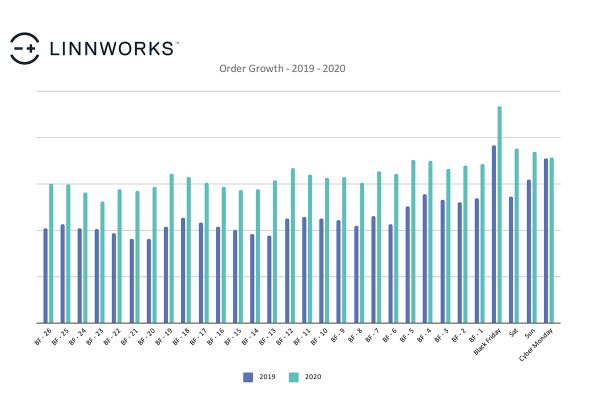 This week I’m speaking at the Great Northern Forum, part of the four day Home and Gift show at Harrogate.
This week I’m speaking at the Great Northern Forum, part of the four day Home and Gift show at Harrogate.
The subject of my presentation to the exhibitors is how manufacturers and wholesalers should engage with marketplaces. There’s an obvious dilemma in a town such as Harrogate, with retail customers such as independent department store Hoopers established in 1982 considered a relative newcomer.
34 years is nothing on the high street, although the Internet hadn’t even been created back then, let alone the first marketplaces such as eBay and Amazon which didn’t appear until the late 1990’s.
Lunchtime in Harrogate saw us having tea and cakes in the world renowned Bettys which was established in 1919. That’s history and tradition which is what the high street is steeped in. Today I’m hoping to visit the oldest sweetshop which has been trading from the same premises since 1827.
Harrogate then is a quintessential English town where visiting manufacturers and wholesalers of home and giftware have been supporting retailers for years and just about every town in the country is the same.
What then of these newfangled marketplaces where suppliers worry about prices being trashed in a race to the bottom, perceived value disappearing, margins for their retailers with hefty physical premises overheads disappearing and competition from cheap Chinese imports is rife.
It’s no wonder that the BVOH recently reported over 2,000 manufacturers to the EU for protectionist strategies, but how can these manufacturers embrace ecommerce without killing their high street partners? There are several options available:
Sell on marketplaces
The manufacturers and wholesalers could simply ban their retailers from selling on marketplace and sell on the sites themselves. This would immediately upset all their retail customers who could accuse them of stealing their trade – an obvious dilemma.
Nominated Resellers
A second strategy could be to nominate certain retail partners who are authorised to sell on marketplaces. In principle this is no different to a supplier assigning territorial areas to their retailers, something that still happens with the likes of Betterware and Avon traders.
Again however, there is still the danger of upsetting those retailers not authorised to sell online. Plus it’s likely that the authorised retailers may not carry the full product range of all lines leaving gaps in inventory on the marketplaces.
Attributed Sales
A third option is for the supplier to sell on marketplaces but to attribute sales to the nearest retailer to each consumer customer. There are various ways this could work ranging from the retailer despatching the product to simply assigning a “marketplace commission” to be applied as a discount against their next order.
No restrictions
Many retailers would on the face of it prefer no selling restrictions whatsoever. They want to be able to purchase stock and then retail it in store, online, on marketplaces, on overseas marketplaces – pretty much anywhere they wish.
However these are the same retailers who will complain when a competitor trashes the price with lower margins, especially if it’s a small retailer or an online only retailer without the same overheads.
What would your ideal solution be?
You, as an online retailer, obviously have suppliers. Some Tamebay readers have physical stores, many are online only. You all have competitors and you all have suppliers who could potentially put marketplace or other restrictions in place.
It’s a complex situation – although as we are still part of the EU, the idea is that we are members of a common trading area with no restrictions on the movement of goods and services, some suppliers do put restrictions in place and some retailers welcome these restrictions.
Perhaps it’s better for a supplier to leave the market open but simply raise the barrier to entry with minimum order values and insist on a certain annual turnover, but that in itself could rule you out as a retail customer.
We’d love to hear your thoughts, do you welcome supplier restrictions to protect the market for their products or are they a pain and you wish restrictive behaviour would be eliminated? Tell us your experiences and thoughts.









2 Responses
Would prefer it if we did not have restrictions on where we could sell though I do accept the suppliers preferring the online marketplace to not undercut a certain price.
Usually that price is set so low that its not cost effective as an online price anyway for most small sellers.
Always someone wanting to be cheapest….
it largely depends on the product.
for most, free trade rules, as long as the manufacturer plays fair with their wholesale price, nobody should be able to undercut you massively for long.
for high-value lines, where retailers put in a lot of time/effort/money into advertising, photographing, and adding value to the brand as a whole, should be protected from those looking to bastardise and devalue a brand for a quick buck, then move on.
some manufactuers may be best with the “going it alone” option of direct listing, but if that doesnt work out great for them (marketplace selling aint always as easy as it looks), good luck crawling back in with their old re-sellers, they wont want to know you.
each manufacturer should evaluate what option is best for them and their brand, and act accordingly.